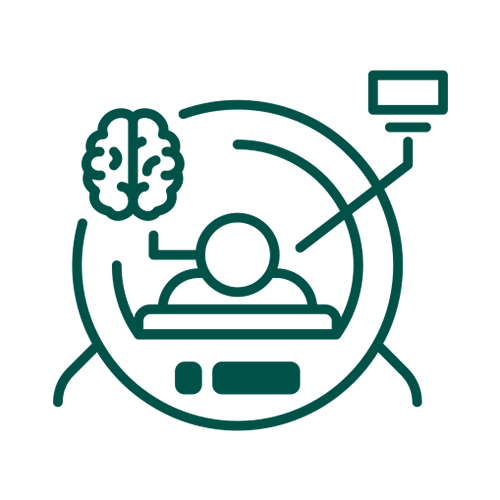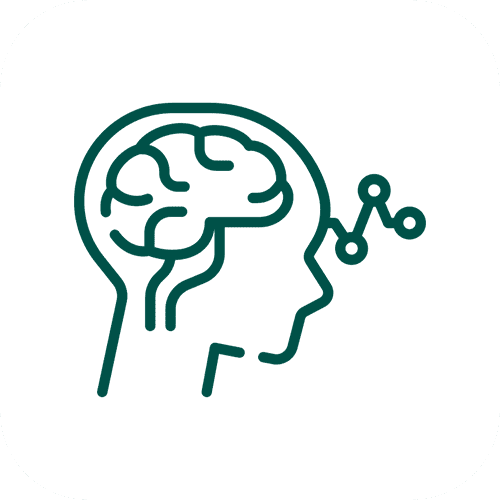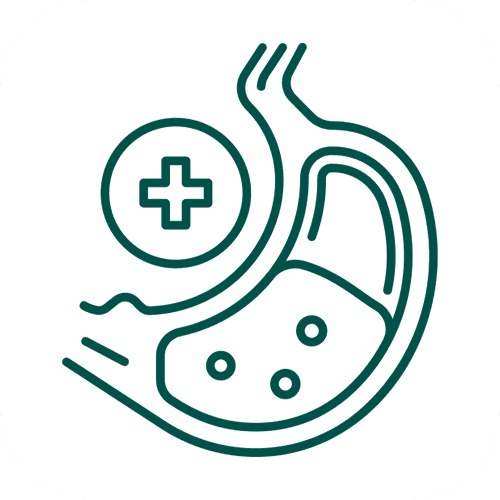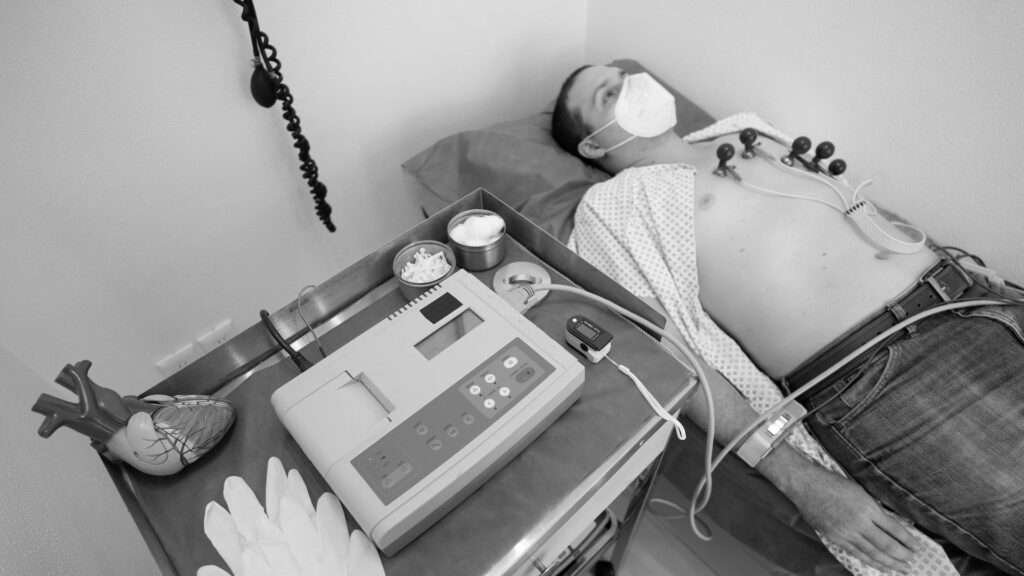Cardiology
A Passion for putting patients First
- A Passion for Healing
- All our Best
- 5-Star Care
- Believe in Us
- A Lagacy of Excelence
- Always Caring
Cardiology is that branch of medicine which deals with the diagnosis and treatment of heart diseases. Cardiologists investigate patients with suspected heart disease by taking a very careful, extensive history of the patient’s condition and performing a complete physical examination.
Ambulatory Blood Pressure Monitoring (ABPM)
- It is measured for up to 24 hours.
- A small digital blood pressure monitor is attached to a belt around your waist and connected to a cuff around your upper arm.
- It is small enough not to affect your normal daily life and you can even sleep with it on.
- By measuring your blood pressure at regular intervals up to 24 hours, your doctor is able to get a clear idea of how your blood pressure changes throughout the day.
- To establish a diagnosis of high blood pressure (hypertension)
- To identify patients who have higher blood pressure readings when in the clinic (known as ‘white coat effect’)
- To help decide if blood pressure medication is required
- To help to decide whether any change to your medication is required
- To further investigate people whose blood pressure is hard to control
- To see how well a patient’s blood pressure medicines are controlling blood pressure throughout the day
- To see what happens to a patient’s blood pressure at night
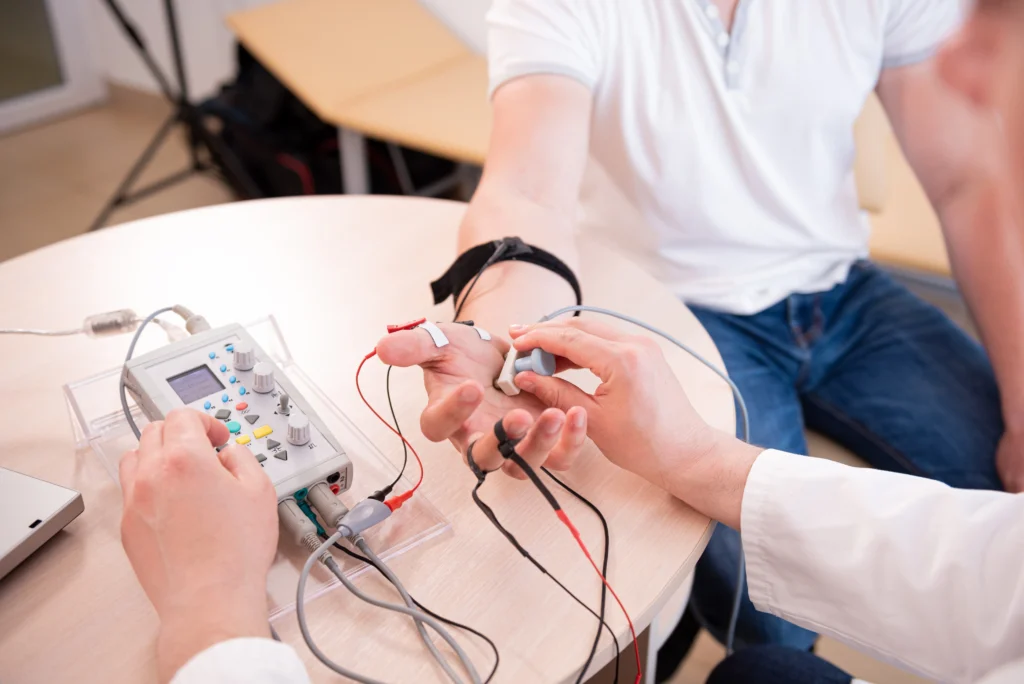
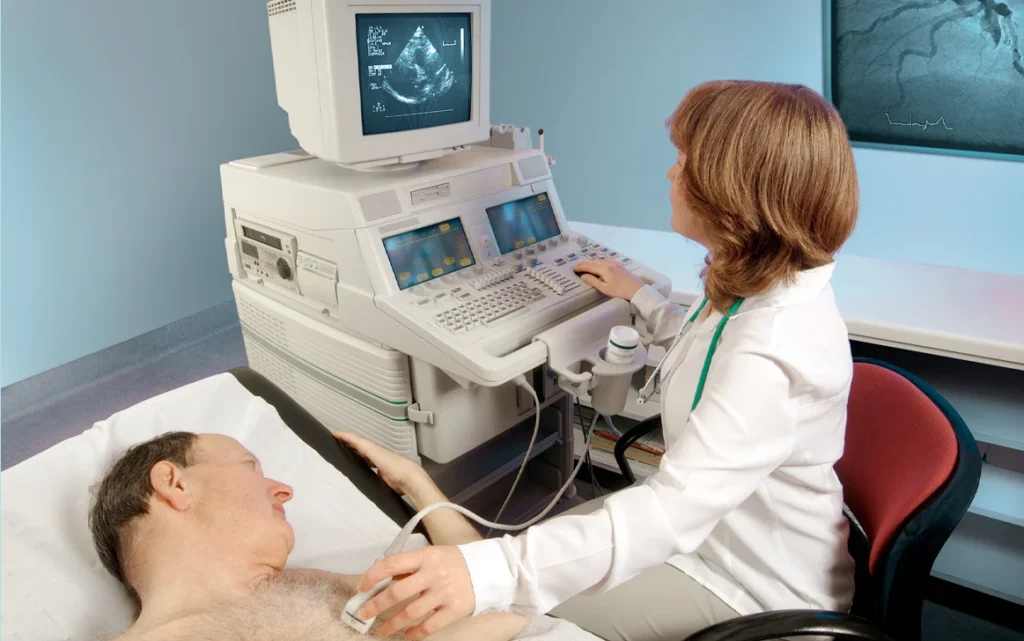
Echocardiogram (ECHO)
- Assess the overall function of your heart
- Determine the presence of many types of heart disease, such as valve disease, myocardial disease, pericardial disease, infective endocarditis, cardiac masses and congenital heart disease
- Follow the progress of valve disease over time
- Evaluate the effectiveness of your medical or surgical treatments
Electrocardiogram (ECG)
- An electrocardiogram is a recording of the small electric waves being generated during heart activity.
- A normal heart beat is initiated by a small Pulse of electric current.
- This tiny electric “shock” spreads rapidly in the heart and makes the heart muscle contract.
- If the whole heart muscle contracted at the same time, there would be no pumping effect.
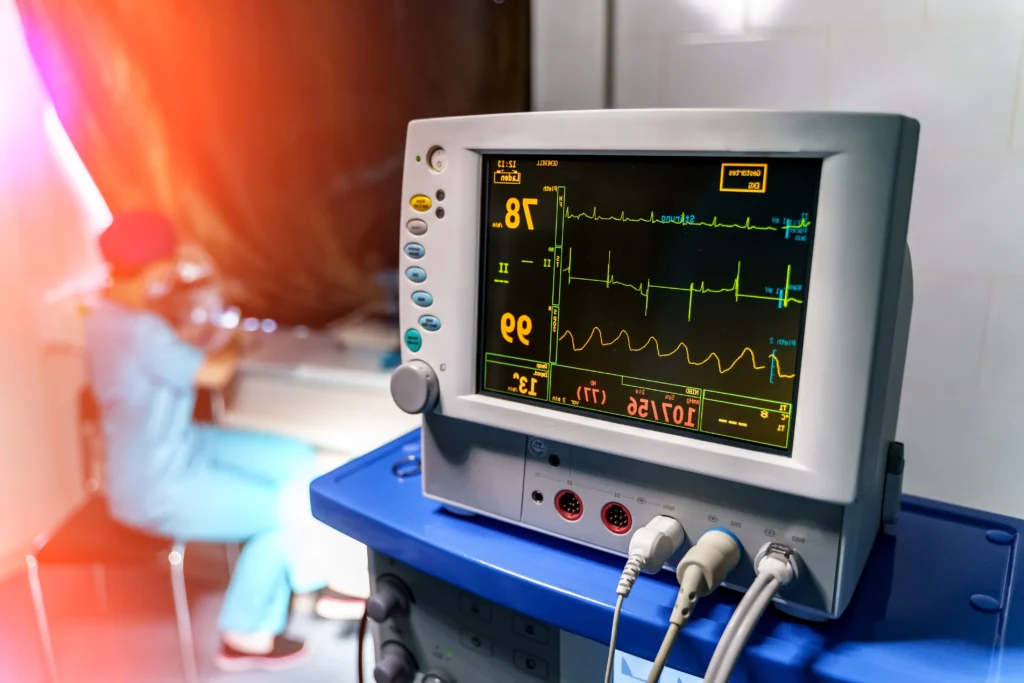
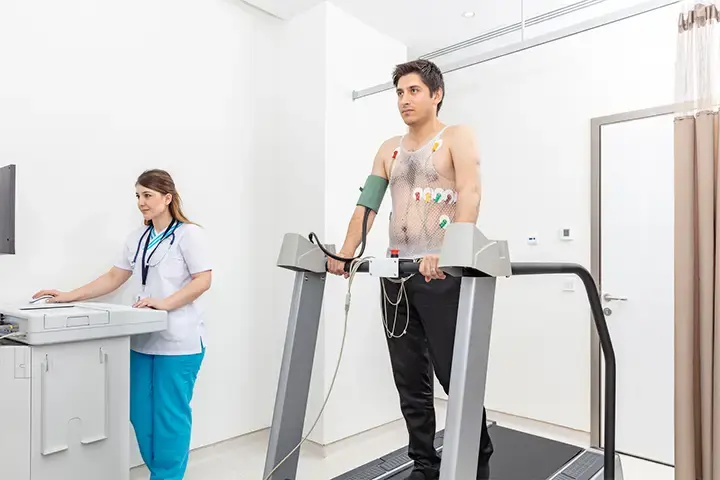
Tread Mill Test (TMT)
- An exercise electrocardiogram (EKG or ECG) is a test that checks for changes in your heart while you exercise.
- Sometimes EKG abnormalities can be seen only during exercise or while symptoms are present.
Pulmonary Function Test (PFT)
- A respiratory therapist will guide you through each test in a special exam room that has all the lung function measuring devices.
- Most of the tests are quick, easy and painless, but be sure to tell the therapist if you feel light-headed, tired or uncomfortable.
- Don’t eat a heavy meal right before the test, and avoid caffeinated foods or drinks.
- Don’t smoke or exercise strenuously for six hours before the test.
- On the day of the test, wear loose clothing that won’t restrict your breathing, and wear dentures to the testing if you normally wear them.
- Finally, just relax, breathe easy and do your best
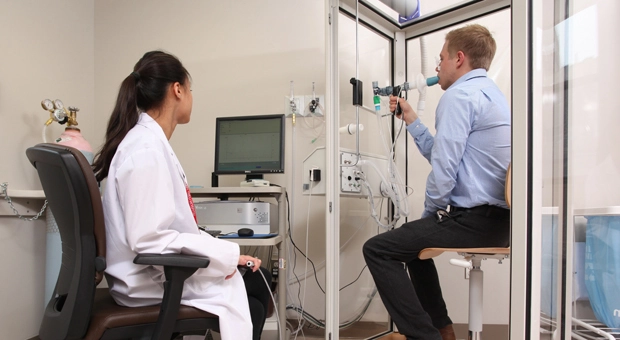
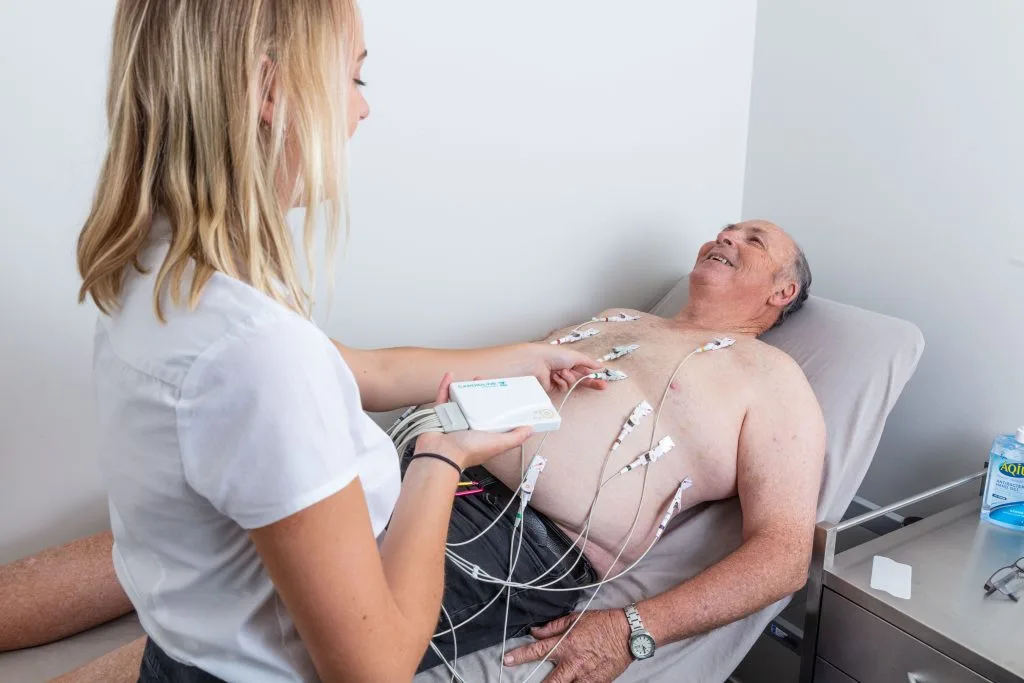
Holter Monitoring
- An arrhythmia is a problem with the rate or rhythm of the heartbeat. Holter and event monitors most often are used to detect arrhythmias.
- Issues with fainting or feeling dizzy. A monitor might be used if causes other than a heart rhythm problem have been ruled out.
- Palpitations (pal-pih-TA-shuns) that recur with no known cause. Palpitations are feelings that your heart is skipping a beat, fluttering, or beating too hard or fast.
- You may have these feelings in your chest, throat, or neck.
- People who are being treated for heart rhythm problems also may need to use Holter or event monitors.
- The monitors can show how well their treatments are working.
- Heart rhythm problems may occur only during certain activities, such sleeping or physical exertion.
- Holter and event monitors record your heart rhythm while you do your normal daily routine.
- This allows your doctor to see how your heart responds to various activities. Holter monitors to record your heart rhythm continuously for 24 to 48 hours.
- A Holter monitor is about the size of a large deck of cards.
- These sensors detect your heart’s electrical signals, and the monitor records your heart rhythm.
